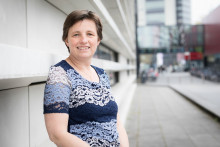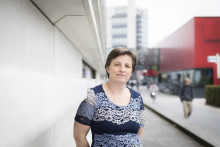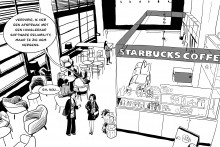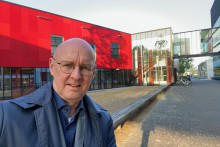‘I develop techniques and tools that can help software developers make their software more reliable,’ says Professor Huisman when asked about her main line of research. ‘When you program, you make mistakes. Every thousand lines of code easily contain up to sixteen errors and a company's software has millions of lines, so that is a lot of errors. Unfortunately these don’t show until the software is running.’
‘Software errors cause big disruptions’
Once the software flaws reveal themselves, they have consequences that range from ‘annoying’ to ‘very severe’, explains Huisman. ‘There is a long list of software errors that have caused big disruptions. Airport systems can’t function for a day, banking systems of entire countries shut down, spacecrafts explode. If Amazon’s service goes down for an hour, the economic losses are enormous.’
It is these and many other software related issues that Marieke Huisman is aiming to tackle. As a Professor in the Formal Methods and Tools Group, she works on techniques that are able to discover errors upfront, before the software is launched. Some of her techniques could also be used for security checks of, for instance, mobile apps. ‘Nowadays there are many apps that spy on us,’ says Huisman. ‘They turn on the microphone of your phone and listen to your conversations. We could scan newly downloaded apps and make sure they don’t do such things.’
About Marieke huisman
2018 Professor of Software Reliability in the FMT (Formal Methods and Tools) Group at the University of Twente working on reliability and correctness of concurrent and distributed software
2017 Vici grant worth €1.5 million from the NWO (Netherlands Organization for Scientific Research)
2014 Professor De Winter Prize for outstanding female talent
2013 Winner of the Netherlands Prize for ICT Research
2010 ERC Starting Grant
2008 Joined the University of Twente
2000 – 2008 INRIA Sophia Antipolis in France
2000 PhD degree obtained from Computing Science Institute, University of Nijmegen
Easy to use
The techniques Huisman develops are rather complicated and they can currently be used only by experts, but the researcher hopes they will become more approachable. ‘We have to look into making the techniques more usable,’ says the professor. ‘My dream is to have regular programmers use them and get instant feedback on the mistakes they made. I hope to achieve this before I retire.’
Is making the techniques easy to use the biggest challenge in Marieke Huisman’s work? ‘It is one of them,’ she thinks. ‘Together with making them more applicable to the real world and making them work on a large scale. I’d like to have a tool that I can take to a company and instantly and easily show that it’s useful for them. Even if their software consists of millions lines of code.’
Keeping control
In our digital society, Huisman’s research is certainly relevant. ‘Some colleagues might say that without our research the society would crash,’ says Huisman, smiling. ‘I would say that software is getting more and more complex and we try to understand what it actually does. If I read about big data and algorithms large companies use, I get a bit scared. With our research, we can help understand what exactly is going on and keep control over it.’









